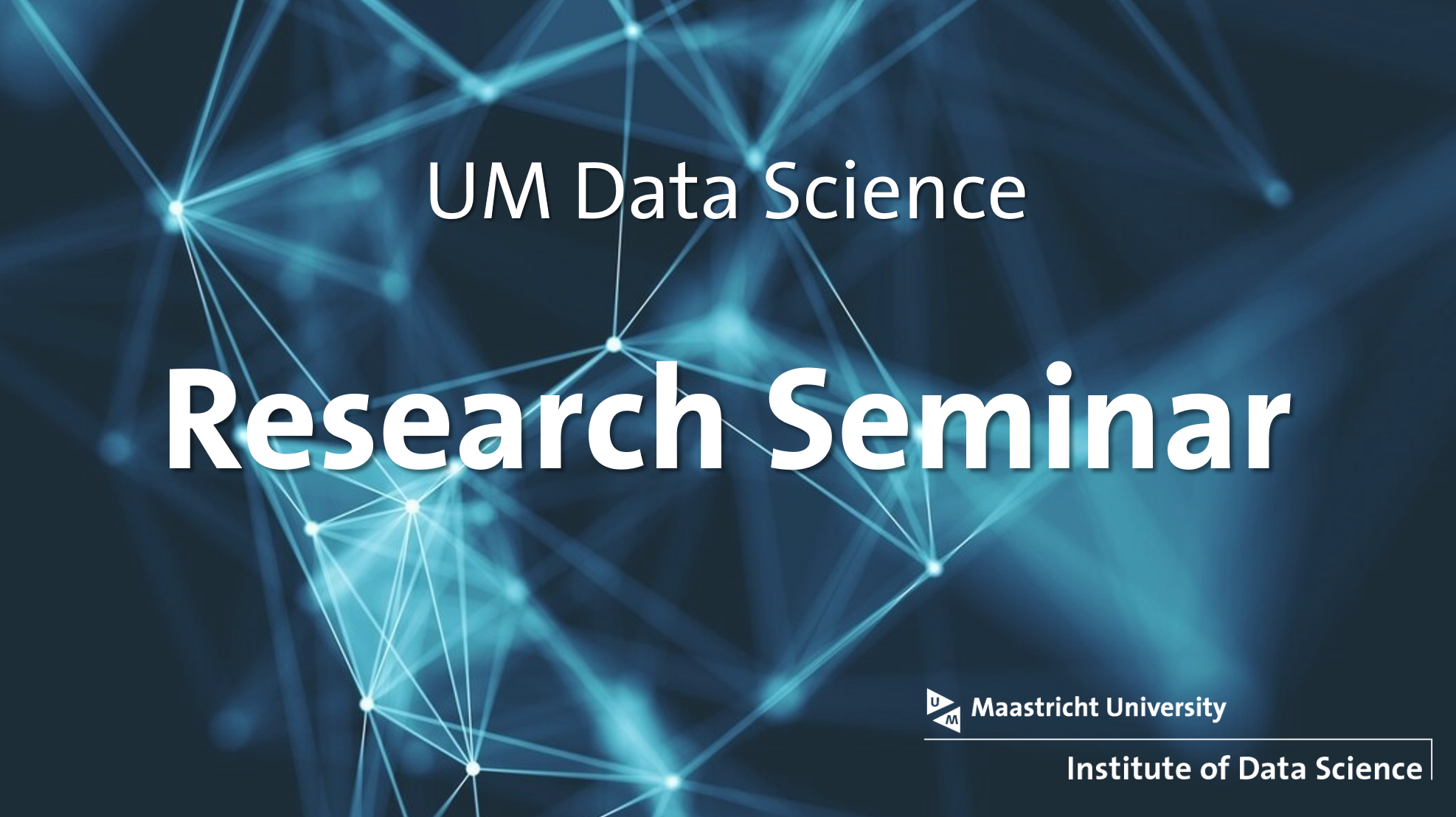UM Data Science Research Seminar with MERLN
The UM Data Science Research Seminar Series are monthly sessions organized by the Institute of Data Science, in collaboration with different departments across UM. The aim of these sessions is to bring together scientists from all over Maastricht University to discuss breakthroughs and research topics related to Data Science. This seminar is organized in collaboration with MERLN.
All events are in-person and free of charge. We also offer participants a FREE lunch.
Schedule
LECTURE 1
Time: 12:00 - 12:30
Speaker: Sangita Swapnasrita
Title: Benchmarking Computational Peritoneal dialysis Models: A comparative study.
Abstract: Peritoneal dialysis (PD) is a gentle form of dialysis for patients with end-stage kidney disease (ESKD). It uses a membrane lining the abdominal cavity, which acts as a natural filter to remove solutes and excess fluid from the body due to low kidney functionality in ESKD patients. Over the >60 years progress in understanding the PD process and PD device development, the corresponding mathematical models have also grown in complexity and understanding of the PD process.
Mathematical modeling is a good way of combining physics with clinical knowledge and providing quantification of solute and fluid transport necessary for optimizing any PD process. It can also help to quantify relationships between the structure and physiological state of peritoneal tissue and its transport characteristics.
Here, we used a dataset obtained in a previous in vivo experimental model of PD in pigs to compare nine computational models of PD (Graff & Fugleberg models, three-pore model, Garred model and Waniewski model) to predict the dialysate concentrations of six solutes throughout a PD session. I will show 1) How the models were trained to predict dialysis results, 2) How the models were compared, and 3) Which model proved to be the most robust.
LECTURE 2
Time: 12:30 - 13:00
Speaker: Daniel Teixeira Oliveira Carvalho
Title: A multistage model of thyroid for screening endocrine-disrupting chemicals.
Abstract: Endocrine disruptors (EDs) are chemicals that contribute to health problems by interfering with the physiological production and target effects of hormones, with proven impacts on a number of endocrine systems including the thyroid gland. Exposure to EDs has also been associated with impairment of the reproductive system and incidence in occurrence of obesity, type 2 diabetes, and cardiovascular diseases during ageing.
SCREENED aims at developing in vitro assays based on rodent and human thyroid cells organized in three different three-dimensional (3D) constructs. These 3D constructs will be hosted in a modular microbioreactor equipped with innovative sensing technology and enabling precise control of cell culture conditions. The dynamic models will be used to screen the effect of EDs on the thyroid function in a unique biological sex-specific manner. Their performance will be assessed individually, in comparison with each other, and against in vivo studies. The resulting 3D assays are expected to yield responses to low doses of different EDs, with sensitivity and specificity higher than that of classical 2D in vitro assays and animal models. Supporting the “Adverse Outcome Pathway” concept, proteogenomic analysis and biological computational modelling of the underlying mode of action of the tested EDs will be pursued to gain a mechanistic understanding of the chain of events from exposure to adverse toxic effects on thyroid function.
For future uptake, SCREENED will engage discussion with relevant stakeholder groups, including regulatory bodies and industry, to ensure that the assays will fit with purposes of ED safety assessment.

Please register by Monday 12 June, 10:00 A.M.